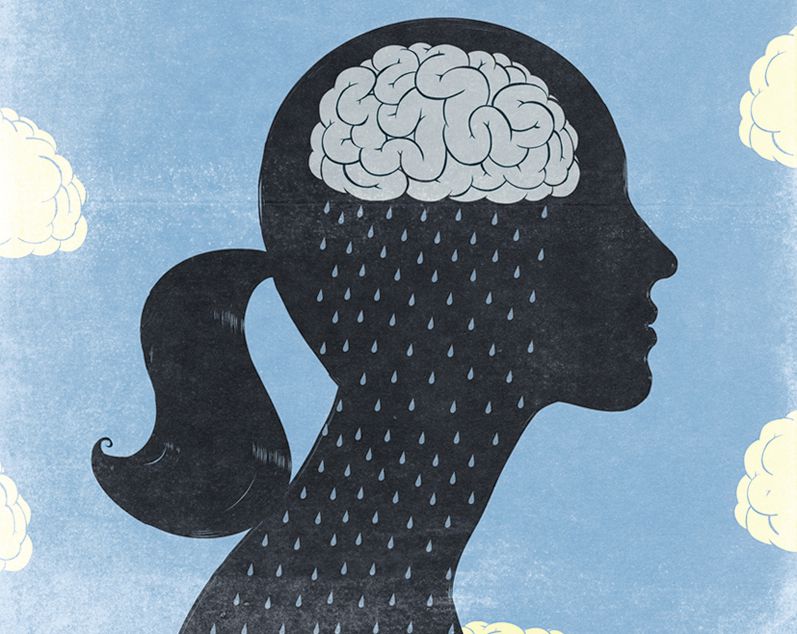
Illustration by Shout
Those who have not lost a child told me work is a good distraction. Those who have lost a child told me the same.
There are many famous lines from the Nora Ephron directed and co-written 1993 romantic comedy, Sleepless in Seattle, starring Tom Hanks and Meg Ryan. The film contains parallel stories of two people looking for love. Sam is widowed and is seeking a love that is magical, like the one he had with his wife. Annie is looking for a love that is equivalent to Gary Grant, and Debra Kerr’s Hollywood portrayed love story, depicted in An Affair to Remember.
“Work, work will see you through this.”
The quote I recall did not make the list of those I found on the internet. It is from a scene after the death of Sam’s wife, where Sam’s boss tells him to take some time off from work, for a mental break, and take his son fishing. Sam replies by regurgitating the plethora of unsolicited advice he has received, quoting one, “Work, work will see you through this.” It is the quote I remember now because it is relevant to me. Sam and his young son have to figure out how to live with their grief and the hole in their lives. Work as a tool is the advice he receives from well-intended supporters.
I went back to work after 6 months, from my son’s death, first part-time, and then gradually full-time. At least that was the plan. Part-time quickly led to overtime due to the work demands of my job.
I am not the person I was before, everything seems so much harder, including work.
This job seems so much harder than it did before. It is hard to concentrate. The 10 hour day bombardment of emails, instant messages, and working on the weekend is way beyond tolerable. The before me would be fine with the workload, taking it on, and leading through it. But I am different. Even though this work has meaning, it really is not worth the sleepless nights thinking about how to get the job done, and the risks I need to circumvent. I lay awake at 3:00 am replaying the conversations I had during the day, the actions I ran out of time to complete, pictures in my head of presentation material I need to create, and discussions with leaders I need to undertake.
"How are you?" Is that really a question or an opening statement?
Each meeting someone starts the conversation with the ubiquitous question, “How are you? How was your weekend?” On a recent Friday, after a long week, I replied, “I will never answer anything but fine to this question. I do not think people are prepared to receive a truthful response.
The person I was having this conversation agreed with my statement and then opened up sharing, “I am recovering from a terrible cold, and I was up in the middle of the night with my baby.” I was polite. I did not share, “I am beyond terrible. I am living with an incurable broken heart caused by grief, decreased mental and emotional strength, and a soul that is forever changed. “
I avoid work dinners and small talk. I join meetings last, so I do not have to listen to co-workers describe forgettable events and minor struggles like they are materially significant.
Between meetings, I open up email’s to respond. If the answer is not quick, and I have to think through it, my mind quickly moves on to another topic. My eyes move from the keyboard to computer screens, but not registering anything worthwhile. In the evening after the bombardment of the day is over, I weed my way through my desktop full of open emails, unread messages, and open files. Work days move into work evenings so I can have silence to concentrate.

The Grieving Brain
My mind operates differently than before. I miss appointments. I put them in my calendar and set reminders on my phone to alert me, and I still miss them or show up a day early. I quickly forget passwords, or where I wrote them down, and where I put things. I miss my exit, having to double back. I once accidentally gave the little dog the bigger dog’s medicine and thank goodness I came to my senses in time to dig it out of her throat.
I have a short attention span, memory loss, and anger easy. My grief also impacts me physically. I feel tired and weak and have little desire to exercise or eat healthy food. There is a trauma aspect for going back to work, as it brings back all of those memories of my life before he died and the immense anguish and guilt that comes with it.
There is medical research that proves the grieving brain has more activity than a healthy mind, linking to mood changes and the performance of organs.
“[W]hen brain imaging studies are done on people who are grieving, increased activity is seen along a broad network of neurons. These link areas associated not only with mood but also with memory, perception, conceptualization, and even the regulation of the heart, the digestive system, and other organs.” Crook, Thomas, Ph.D. (2011), Prevention Magazine

I am giving myself leeway. Achieving an average performance rating is my new "exceeds exception."
I don’t know if I want my same thinking capacity back, because it puts me back to where I was before my son died; working. I want a simpler life, where I am not bombarded with endless questions and decisions to make.
A friend and suicide loss survivor said she operates at 50% of her before thinking capacity. She prefers repetitive work, where extensive thinking is not a requirement. My symptoms and feelings are similar to those of other loss survivors.
For now, I am on the road of inertia because doing something else takes the energy I do not have. My therapist urges me to envision doing something else with my life, as I do deserve to be happy. Start by taking little steps to gain the strength to make the change.
Crook, Thomas. “This Is How Your Brain Reacts To Losing A Loved One.” Prevention, Prevention, 13 Dec. 2018, <www.prevention.com/health/memory/a20441690/how-your-brain-reacts-to-grief/>, viewed 16 Feb. 2019.


Elizabeth Zaye | 21st Mar 19
My daughter, 24 years old, died by suicide July 22, 2018. It’s hard every single day and I miss her every second. I also answer “fine”, to the how ya doing question. I don’t have the energy to share the truth and most people don’t want the truth. I’m glad I found your blog. Thank you for sharing your grief journey. You are an amazing mom!